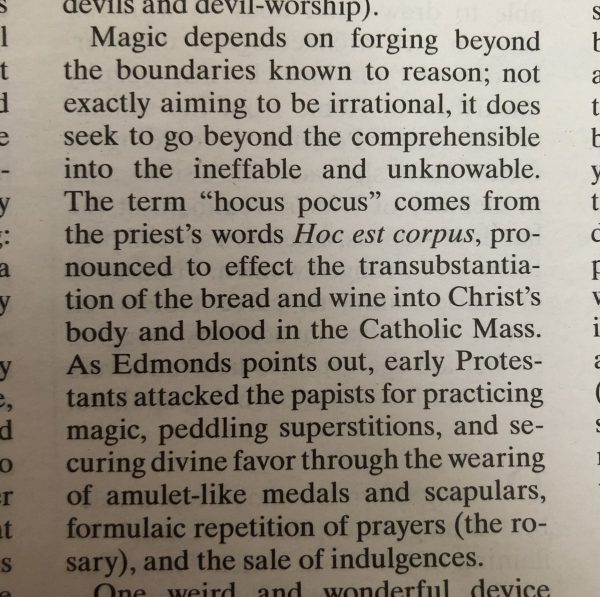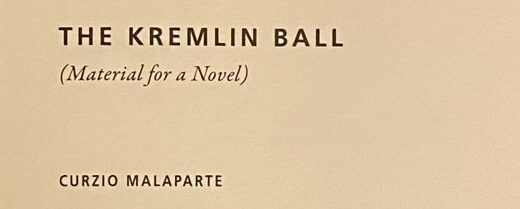
A paragraph on the phrase “hocus pocus” from Marina Warner’s essay “Spellbound” (New York Review of Books, July 2nd, 2020), which is a review of what sounds like a fascinating book, Drawing Down The Moon, by Radcliffe G. Edmonds III.
This excerpt indicates how matters superstitious are frequently about politics—namely, how the rabid anti-papists could turn something beautiful (transubstantiation) into a curse.
Ah, the power of language (a topic addressed as well by both Edmonds and Warner in her review).
Perhaps it’s a sign of the times that we live in that I am reading authors like Arthur Machen (actually, I read about Machen in another NRYB review) and am curious about the netherworld of science, philosophy, and medicine. Perhaps now more than ever, with doubts about science (as if science did not have its own constitutive yet life-affirming problems) that it had to fend off a pernicious administration concerned more with vanity and snake-oil sales and all of its hangers-on—perhaps it’s now more than ever that this kind of interest is dangerous.
Perhaps that is why this tradition should remain esoteric, hermetic, … minor.
A colleague of mine in graduate school (Joshua Ramey*), who like me began part of his philosophical education inspired by Gilles Deleuze, also turned to history and wrote part of his dissertation on the hermetic tradition intersecting with Deleuze (that is my woeful, quite possibly inaccurate gloss), which means that he read authors like Nicolas of Cusa, Giordano Bruno, and the like sympathetically. In this latter respect I envy him, insofar as I would like to do that. Unfortunately, my interests haven’t allowed me at present.
* Josh is very likely the most authentic person in existence, as any of my erstwhile philosophical colleagues at Villanova and anyone whose met him can attest. I dare anyone (not withstanding students, among whom there will always be one) to say that they do not like him.



